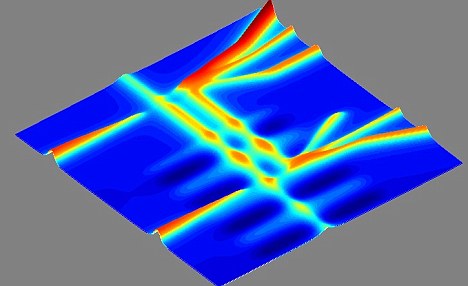While Quantum computing is not new, it has given birth to a new breed of researchers who devote all of their time and energy into discovering new methods of understanding electrons.
Researchers from the Cambridge University have announced that they almost played ‘ping pong’ with an individual electron and moved it back and forth almost 60 times across a ‘net’. It helps scientists understand how electrons behave in a closed atmosphere and how information can be transferred within different parts of an electronic circuit. The so called ‘quantum’ circuit can be thousands of times more powerful than the computers that we know of today. Quantum computers measure information in ‘Qubits’ instead of bits. Qubits contain both 0 and 1, which means they would help the computer to think in very different manners than the binaries that they are used to. It is almost a postmodern sort of technology, where the computers are ‘taught’ to give up binaries and learn to ‘think’ in manners that are much different.
The scientists trapped the qubits in a small space which would resemble a well and named it the ‘quantum dot'[. This well would lead the electron through a corridor where an electric potential would pick the electron and from there, it was found that electrons could be moved back and forth as the scientists wanted. The tennis or ‘ping pong’ analogy is rather striking because it allows the scientists to build new computers that are enabled by quantum circuits. These computers would be exponentially faster than classical computers. One of the problems that still remains to be solved or explored further is the issue of ‘teaching’ electrons to remember.
Scientists still have not devised a method to teach the electrons to hold information for a longer time, which is what is most important for a computer to do. Cambridge’s Semiconductor Physics Group’s Chris Ford however asserted that it may take a while but scientists would soon be able to develop a method for electrons to remember as well. This would mean that years of studying of binaries and coding might prove to be useless, when the quantum computers finally arrive. You could also take a look at the Quantum Parallelograph, which reportedly gives you a report of your parallel lives. The D-Wave One was another computer that we had featured earlier, and makes use of quantum technology.











